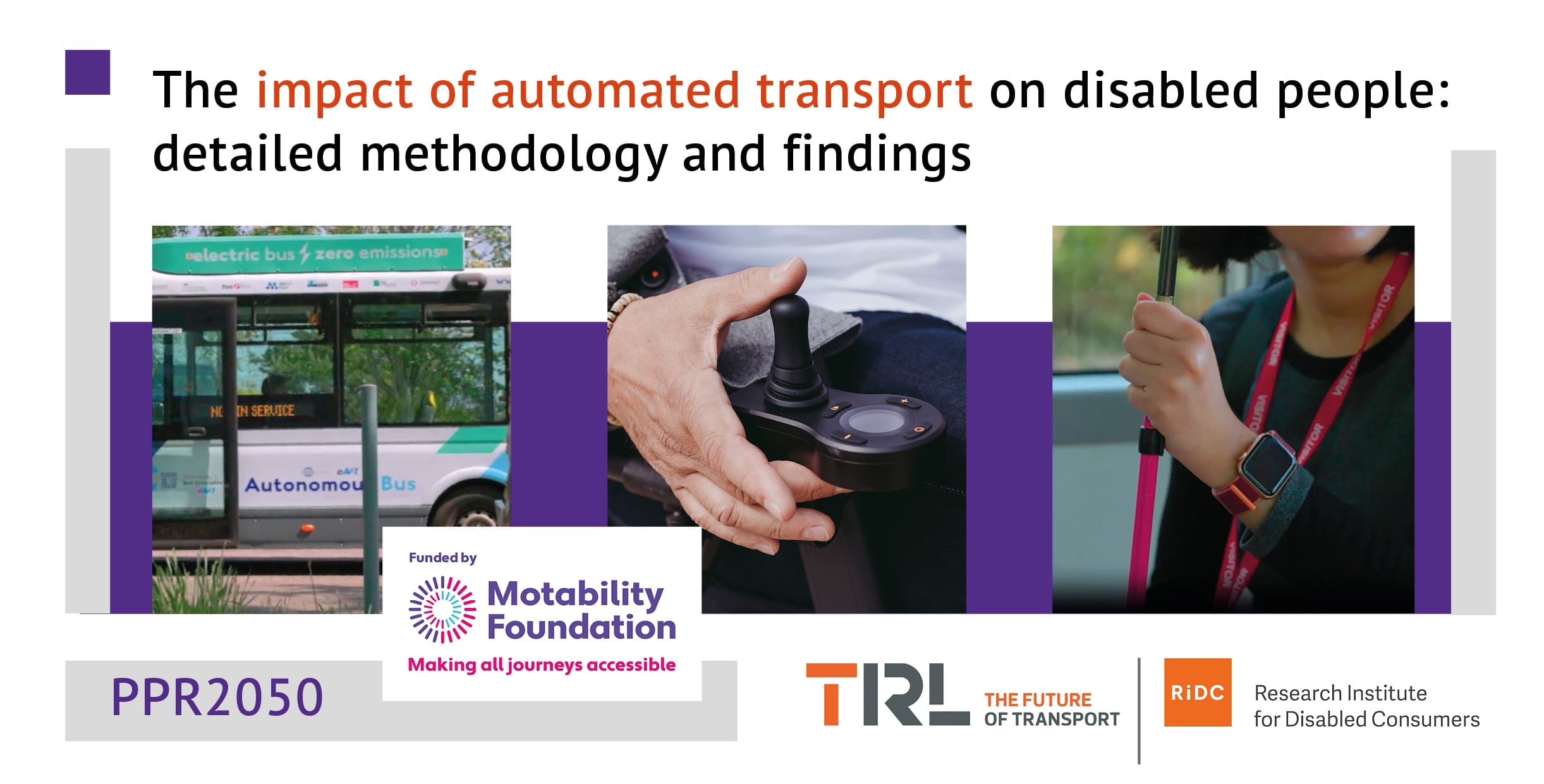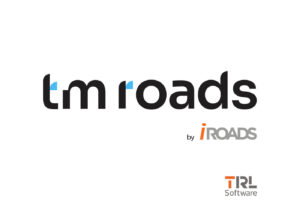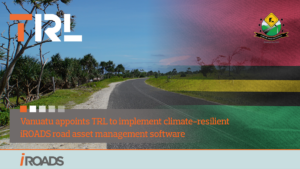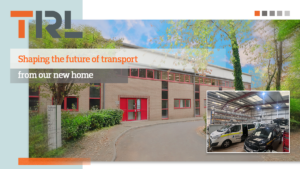New research from TRL and RiDC raises concerns that disabled people could be left behind unless accessibility is prioritised in the design of automated transport systems.
As the UK moves closer to a future where self-driving vehicles are part of everyday life, a unique report from the Transport Research Foundation (the parent company to TRL Ltd) and the Research Institute for Disabled Consumers (RiDC) has raised concerns that disabled people could be left behind unless accessibility is prioritised from the outset.
The report, titled *The Impact of Automated Transport on Disabled People* explores how disabled people could become regular users of self-driving vehicles. However, it also warns that without careful consideration, automated transport systems could replicate or even exacerbate the barriers disabled individuals currently face when using existing transport modes.
The research was funded by the Motability Foundation. The project was initiated by TRL and RiDC in response to growing concerns that the needs of disabled people are not being taken into consideration by the teams designing driverless vehicles and planning for transport services using driverless vehicles. The evidence laid out in the report supports the need for guidance to designers to ensure development of inclusive automated transport technologies and services. The detailed feedback from disabled consumers in this report makes it possible for designers to better understand the needs, perceptions, and challenges faced by disabled people.
“Overall, disabled consumers are enthusiastic about the potential of automated transport to offer greater independence”, says Indigo Ayling from RiDC, “However, this research should be a wake-up call to designers, policy makers and regulators. Our findings show that many of the challenges already experienced in conventional transport, such as difficulties boarding vehicles, lack of accessible information, and the absence of staff to provide assistance, will persist or worsen if not addressed in automated systems. Involving disabled people from the beginning in the design and testing of new services is essential.”
Dr George Beard from TRL highlighted some of the issues identified through the research: “Our research has revealed concerns over safety and the reliability of automated transport. For example, the absence of a human driver, who traditionally assists passengers with a range of non-driving related tasks, such as ramp deployment or providing information, was identified as a significant issue that needs to be addressed. It is also clear that there are numerous stakeholders involved in the design, development and deployment of automated transport services and as such there is a risk of accessibility ‘falling through the gaps’ if responsibilities are not clearly defined”.
Despite a change of government, the UK is preparing for the roll-out of large scale trials of autonomous vehicles on public roads, possibly within 18 months. This report appeals for action to avoid repeating mistakes from previous leaps in technology, where accessibility was overlooked in favour of rapid deployment.
The researchers stress the importance of clear and enforceable regulations that promote inclusivity and encourage innovation. They also recommend better guidance on how to integrate the needs of disabled people into the design and implementation of automated transport services. They advocate for a framework based on the principles of:
- User-Centric Design: Ensuring disabled individuals are involved in every stage of development of the vehicle—including ideation, prototyping, beta-testing, and post-production.
- Accessibility at Every Stage of the Journey: Transport systems must consider the entire journey, from booking a vehicle to safely reaching the destination, with emphasis on reliable and accessible information both before and during the journey.
- Ongoing Monitoring: A system for continuous evaluation of accessibility features must be established, allowing for improvements based on user feedback.
Lisa Jones, Director of Charitable Operations at the Motability Foundation commented: “We are really pleased to award this grant to TRF, in partnership with RiDC, to bring the voice of disabled people into the thinking on automated transport and ensure truly accessible solutions to the future of transport.
“Through this research grant and the work of experienced organisations, TRF and RiDC, we can better understand the ways transport accessibility needs to change. This report highlights both the exciting opportunities and the significant challenges that must be overcome to ensure transport is truly inclusive and everyone benefits from accessible features.”
PIC:TRL
























